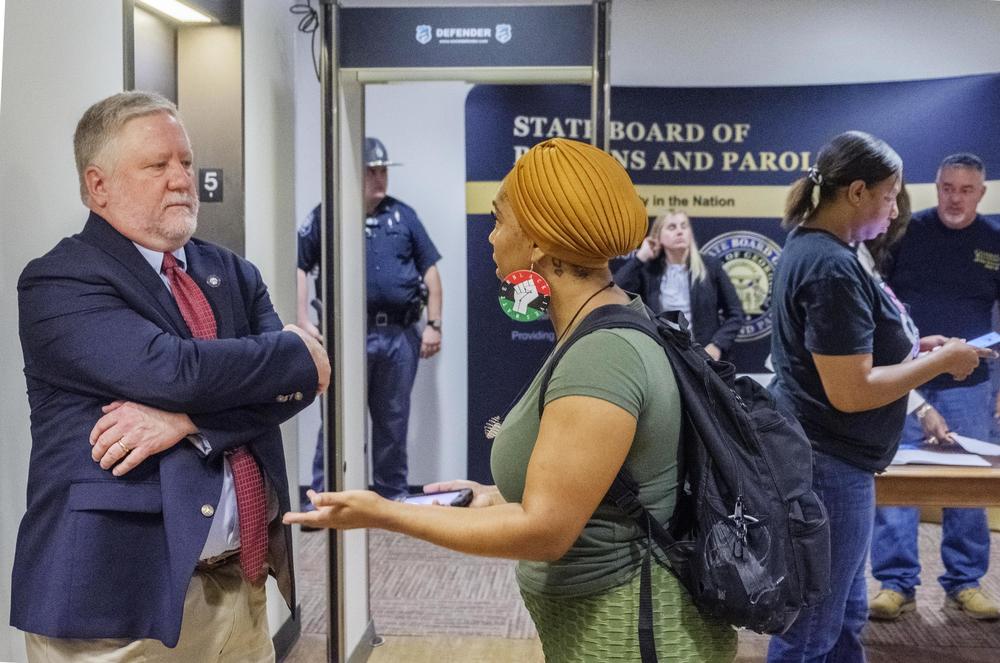
Caption
Andrea Guice (right) talks to Georgia Board of Pardons and Parole spokesperson Steve Hayes after the board's September meeting. Guice's brother has served 8 years in prison past his first possible parole date.
Credit: Grant Blankenship / GPB News

